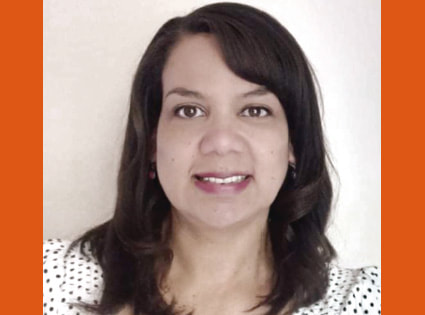Mental Health and the Hispanic Community
The migrant community is undoubtedly a sector that often requires all possible guidance to deal with mental health. We face many challenges, from learning a different language to policies we do not know or understand completely. Among the stories of migrants, we find that of Gaby Shelton, of Panamanian origin, who came to live in Alaska in 2005 with her then-husband.
Shelton narrates how it was that she turned her life around, “in 2016 I divorced, and I did not have a career or a way to support my children as a single mother, so I decided to go back to school, I did not know what I was going to study, or how I was going to pay for classes. Since I had never attended an American university, I was perplexed, but I was also determined to study. The situation I was in forced me to achieve it in one of the most difficult times in my life.” With the help of a social worker, Shelton received the necessary guidance to complete her paperwork and enroll in the Social Work Program at the University of Alaska Anchorage (UAA). “When I arrived at the University’s Admissions office, the first thing I saw was a poster of the School of Social Work. I took it as a sign because I have always liked to help others, so it was clear to choose that career. I wanted to help others just as a social worker had helped me by guiding me to get into college,” Shelton says. Shelton graduated with a bachelor’s degree in Social Work last year, and is currently studying for a master’s degree in Social Work at UAA. In addition, she works at Providence Crisis Recovery Center as a Mental Health Specialist and as a Direct Domestic Violence Advocate and Counselor for Alaska Women in Crisis or AWAIC. According to Shelton, mental health is as important as physical health. “In our Hispanic community, besides having the same problems that affect everyone, we also deal with being away from our parents and most of our loved ones. For those of us who are migrants, it is a radical change because we must get used to a new culture and, at the same time, try not to lose ours. This is not easy. In many cases, we don’t have a support system and have to deal with feelings of isolation and depression.” Shelton calls on the entire community, especially the Hispanic community, to maintain solid mental health. “There are many daily routines that we can incorporate into our schedule to make sure we are practicing self-care. Some of these practices are as simple as keeping a gratitude journal to write down all the things that elevate you. That way, when you’re feeling depressed, you can read it and remind yourself of the positive things you have in your life.” “In addition, mindfulness and meditation are excellent ways to promote mental health, as these are exercises that help you concentrate and become aware of the moment and calmly recognize and accept your feelings, thoughts, and sensations,” she said. “It is important to seek help when needed, and do not continue to suffer in silence. There is no shame in asking for help,” Shelton notes. |
